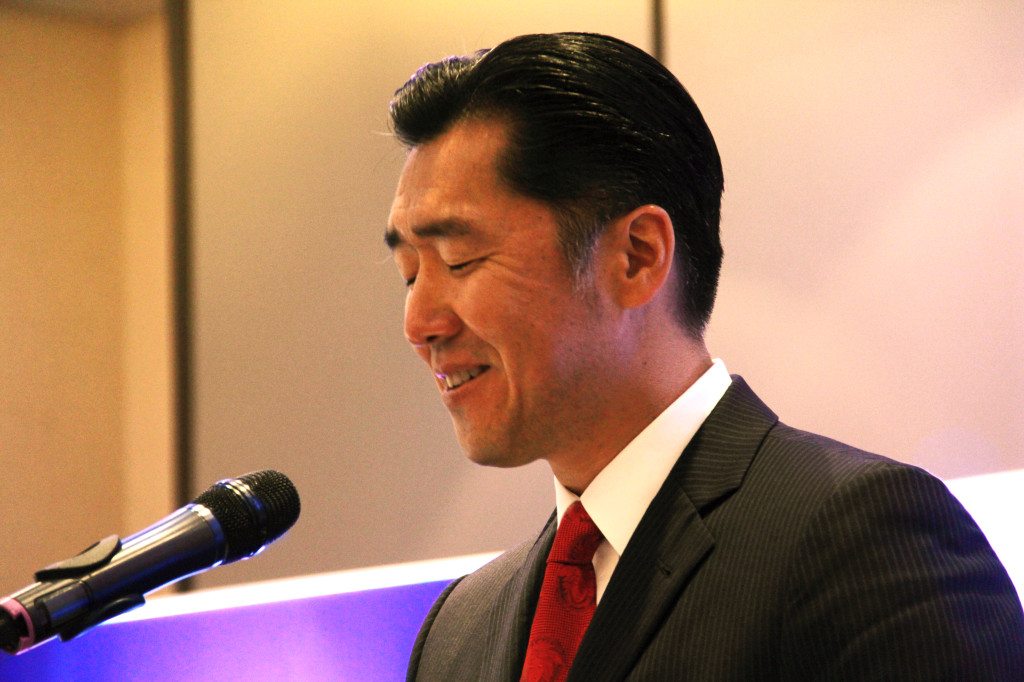
Hyun Jin Moon speaks at the Paraguay conference about the importance of Paraguay – South Korea relations.
A Gallop Poll published in May 2014 ranked Paraguay first in the world for experiencing positive emotions. During his recent visit to Paraguay, Dr. Hyun Jin Moon, chairman of the Global Peace Foundation commented on this finding. “This goes to show that true happiness is not derived solely from material success, but is rooted in our deep faith in God, in strong families and communities, and in our love of country.”
Paraguay, host the 2014 Global Peace Convention in November, was nominated for its unique story of national transformation. The nation has overcome economic and political difficulties by building on their spiritual values and faith in God, and trusting in their families and communities.
In recent years, the family has gained international recognition as a major contributor to peace and development. Outcomes from the 20th anniversary of the International Day of Families illustrate this increased awareness. A report issued by the UN Secretary-General in preparation for the observance of the 20th Anniversary of the International Day of Families expressed that the family is “the fundamental unit of society” and “offers a comprehensive approach to solving some of the persistent development challenges.” This year’s high-level proceedings emphasized and urged for family-friendly policies and the integration of the family as partners in securing international development goals. The theme, “Families Matter for the Achievement of Development Goals,” focused on highlighting the critical role of families in promoting inter-generational solidarity, social integration, education and poverty reduction.
A recent article by the Global Peace Foundation on the International Day of Families celebration in Nepal gives insight into how this plays out on a national level.
Guest speaker Mrs. Finu Singh, President of Housewives Association observed, “Families indeed play an important role in the development of the nation.” She detailed how family relationships and values related to national well-being.

Global Peace Association and Global Peace Women Nepal hosts a forum on International Day of Families
Speakers also pointed to extended families as key agents in securing inter-generational solidarity. According to the GPF article, numerous studies support that inter generational extended families foster sensitivity and are the most natural and safe environment for elder care. Mr. Krishna Prasad Pandey, a speaker representing World Prediction, told the forum “the joint family is important as there are many members in the family who can work as a team.” Er. Ram Rohan Panta, GPF Nepal President, pointed to the important role of active parents in their children’s lives.
The family has also been recognized as a primary place for social integration. Issue like gender inequality and education are most effectively addressed in the family. Mrs. Yamuna Shrestha, urged parents to treat sons and daughters with equal value and provide equal opportunities for education. Such precedents within the family have a positive impact on the larger community. “Women play the most important role,” noted panelist Menuka Rai. “When the woman in the family has good moral values then she can keep her family happy and lead her children to good path.”
The Global Peace Foundation places special focus on the family as the cornerstone of society and the first place where values are instilled through the most intimate relationships between individuals. In Nepal GPF has numerous programs that focus on educating women, men and children on key family values, as well as social and economic programs for women’s empowerment and literacy.

